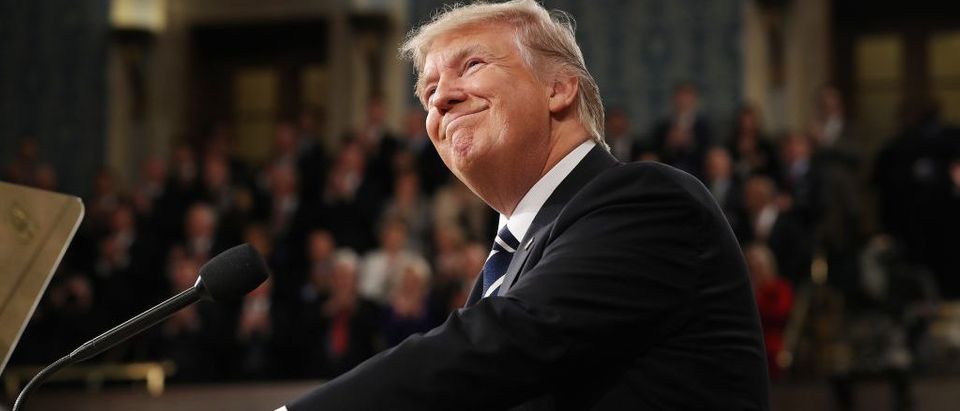In President Donald Trump’s first 100 days we’ve seen the stock market reach all new highs, and we know that is no coincidence. Businesses can expect free-market policies to proliferate over the life of his presidency.
He is scaling back the biggest monopolistic corporate interest in America, the government.
Free market principles rest on the value of competition keeping balance in the marketplace. The government, however, is a company that does not compete.
It thrives off of lack of competition to assert monopoly control and function as a coercive central authority.
Governments continuously return to the tax well and throw money at failed polices, while corporations are forced to change, adapt or go bankrupt (unless the government takes over).
The communications industry underlies 1/6th of our economy, and competition abounds. Wireless, wireline, content creators, websites/edge-providers, satellites, and the hardware and software associated with these industries compete vigorously within their traditional markets. Convergence among these industries has lead to competition across the silos that we once put them in.
Understanding the importance of the communications sector to the American economy as a whole, President Trump nominated Ajit Pai to serve as Chairman of the Federal Communications Commission within his first 30 days.
President Trump deserves credit for taking this nomination seriously at the outset. Giving Pai his full endorsement as Chairman rather than Acting Chairman, leaves no question as to Pai’s authority to move forward free market polices at a commission that has woefully gone off course under the previous chairman.
Obama’s FCC decided in 2015 that it was best to treat the internet, not as the innovative service that it is was recognized to be under Bill Clinton’s 1996 Telecommunications Act, but as a 1930s manually connected telephone service. The Obama FCC used ‘net neutrality’ to justify these beginning steps of government nationalization of the internet.
Net neutrality of 2004 was a few simple principles with the heart of it being: information must pass. No one would argue against protecting consumers online, but I think we can agree that government micromanagement of any industry doesn’t bring the best results.
After nominating Chairman Pai, President Trump’s next step forward to remove public utility regulations fit for 1930’s operators was signing into law the CRA that rescinded the Obama FCC’s massive power grab into privacy regulation.
No one is arguing against privacy. The dust-up over Congress’s use of its Congressional Review Act authority to stop the FCC from creating new online ‘privacy’ regulation is a complete fabrication.
First, no privacy protections were taken away – the FCC ‘privacy’ rules never took effect. And ISPs do not have a new freedom to auction off your data – they have not and do not sell you web search history. This is the same internet we used a year ago – getting rid of the rules did not functionally change how we interact with Internet service providers or websites.
The point is that the Federal Trade Commission had been regulating privacy violations all along. It is the expert agency and should remain so. By signing the CRA into law Congress and the President signaled that the FCC was not given the authority to regulate privacy, and that Title II is the wrong way to ensure consumer protections on the Internet.
Installing Ajit Pai as Chairman of the FCC ensures that there will be consumer protections that don’t mask massive government expansion into our private property and transactions. Using the CRA to stop the Obama era power expansion is a significant success in rolling back duplicative and excessive government.
These are two of President Trump’s major accomplishments in the first 100 days that ensure 1/6th of our economy can continue to grow at the pace of consumer preferences, and not on the whim of public utility commissions.


